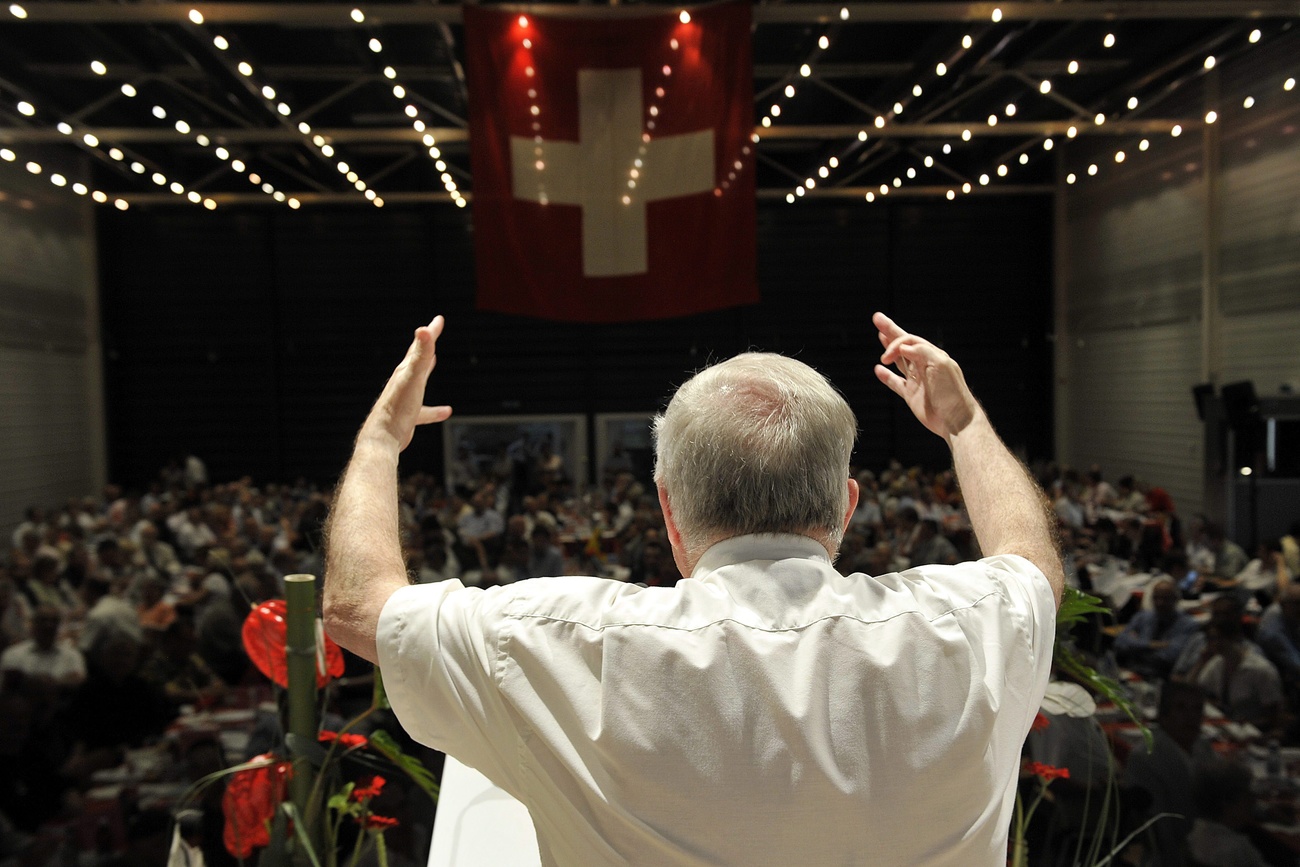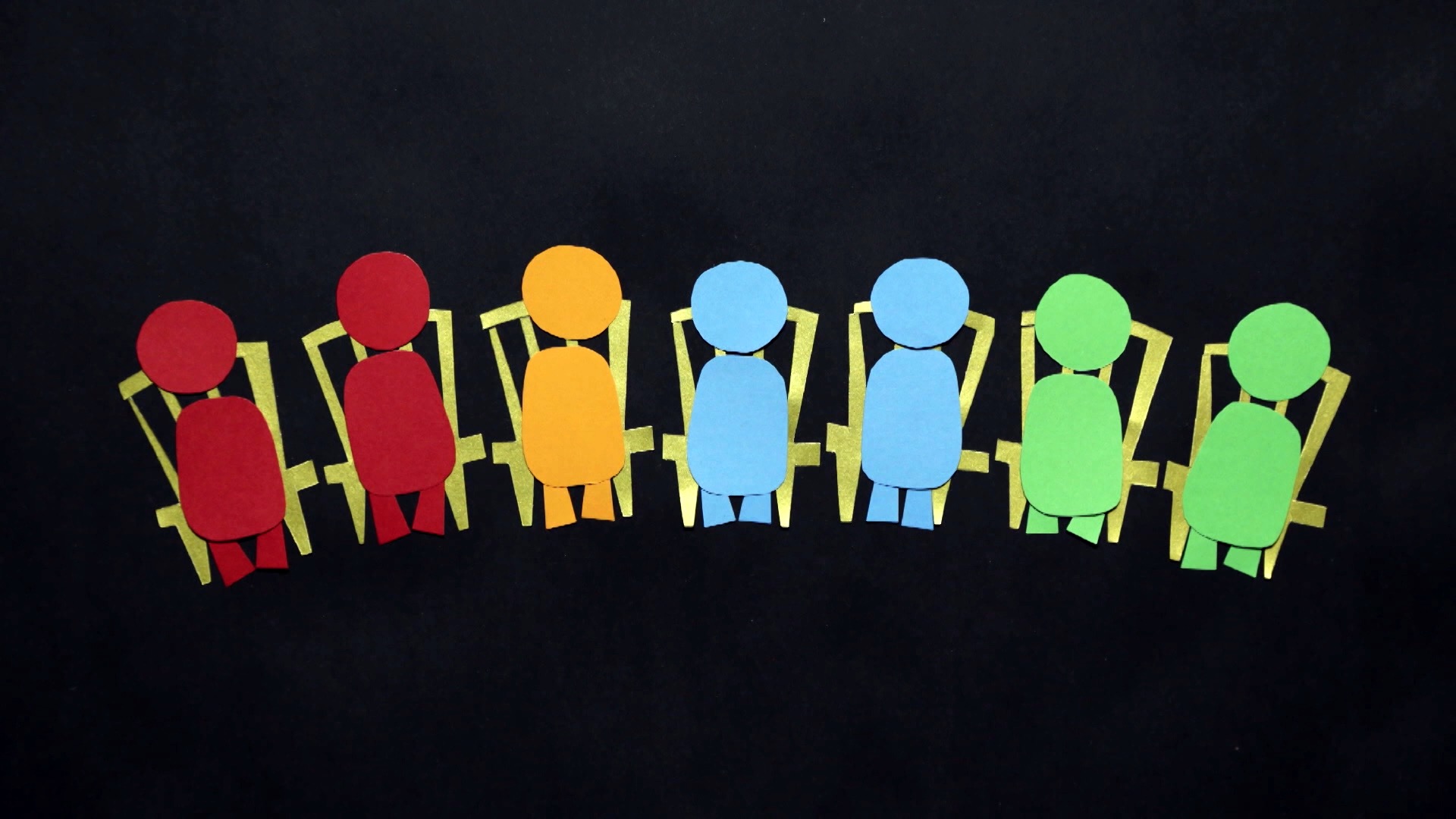Why France is not ready for a Swiss-style government

Political figures who are open to compromise or coalitions are currently few and far between in France. Yet some observers see direct democracy as a way out of the current crisis.
The situation is unprecedented in France under the Fifth Republic. The snap legislative elections held on June 30 and July 7 gave rise to three blocs, whose positions are almost irreconcilable. The New Popular Front (NFP, formed as a union of left-wing parties), which came in slightly in the lead, has almost nothing in common with President Emmanuel Macron’s Renaissance party (centrist), which has run the country for the past seven years. And neither grouping wants anything to do with Marine Le Pen’s far-right National Rally (RN).
There are no signs of a majority emerging, and so there is no government for now. This novel predicament has left many political leaders in a state of denial. Just after the second round of voting, Jean-Luc Mélenchon of the hard-left France Unbowed (LFI) party declared that the left would apply “its whole programme and nothing but its programme” – which seems impossible, given that it falls 100 seats short of an absolute majority.
On the right and in the centre, other elected officials are talking about majorities of “reasonable people”, which are just as shaky as they are in the minority. Some voices are nonetheless calling for coalitions and compromise – despite the traditional aversion of France’s political class to such notions – citing other European countries that have long been run by coalitions: Germany, Italy, the Scandinavian states and Switzerland.
Population welcomes idea of compromise
“The National Assembly is no more divided today than the German or Italian parliaments, which do not see this as a problem,” pointed out Loïc Blondiaux, professor of political science at Paris I Panthéon-Sorbonne University. He even regards the situation as an opportunity, a chance to “repair” French democracy, which has been battered by fierce confrontations and overly vertical systems of government.
“A multi-party executive such as in Switzerland seems almost unthinkable in France today. Yet recent surveys show that two-thirds of French people are in favour of political parties seeking compromise,” he noted.
By voting overwhelmingly for the “republican front” in order to block the RN, the electorate has also set an example of how to compromise. But for the time being, the parties do not seem ready to give up their confrontational ways.
Two very different systems
“France is looking for a new form of power sharing,” explained Swiss political scientist Pascal Sciarini, dean of the faculty of social science of the University of Geneva. “But I am not sure that Switzerland is a model to follow. It seems to me to be too far removed from the French system.”
Swiss politics, he noted, is based on the concordance system, in which all the major parties are represented in government. Across the border in France this seems like a fairy tale, or plain absurd.

Ultimately, for Sciarini, the most worrying thing is that “political leaders who seem prepared to think in terms of coalitions are currently in the minority in their own camps”.
On the left, the parties allied within the NFP are unable to speak with one voice, while they have just a third of the seats in the newly elected Assembly.
“It’s a patchwork alliance,” summed up Gilbert Casasus, professor emeritus of European Studies at the University of Fribourg. “And Jean-Luc Mélenchon has one sole objective: chaos, so as to be in the final against Marine Le Pen in the 2027 presidential election.”
RN is not the Swiss People’s Party
Neither the republican right nor the centre considers the RN as a possible partner. This is thus very different from Switzerland, where the right-wing Swiss People’s Party has been part of the seven-seat government for many years and has had two ministers since 2000. But can the two parties really be compared? This is a recurring question, to which the answer in Switzerland is generally no.

More
Is the Swiss People’s Party far-right?
The two parties have followed inverse curves, according to Nenad Stojanović, professor of political science at the University of Geneva, who is close to the Social Democratic Party. The People’s Party moved from the centre-right to the nationalist right in the 1990s, while Jean-Marie Le Pen’s party, founded by people nostalgic for the Vichy regime and French Algeria, strove, under the presidency of his daughter Marine, to shed its racist, anti-Semitic and homophobic image.
“Although it sometimes plays with a certain ambiguity regarding racism and xenophobia, the People’s Party intends to remain a party of government,” Stojanović stressed.

“Even with 28% or 30% of the vote, the People’s Party cannot have a majority in Switzerland,” Sciarini added. “Its powers are contained by the concordance system and direct democracy. The RN, on the other hand, has its sights on all the levers of power.”
When, in early July, the RN thought it was on the threshold of victory, plans against dual nationals began to resurface, casting doubt on the long process of rebranding undertaken by Marine Le Pen over the past 15 years.
“The RN is trying to cover up its past, championing ‘welfare chauvinism’ – a form of statism that protects nationals only – but it remains profoundly nationalist, with xenophobic undertones,” said Sciarini.
Renewing the Republic through direct democracy?
French political scientist Loïc Blondiaux knows the Swiss system well. He advocates the introduction of a citizen-initiated referendum inspired by Switzerland but adapted to France, and suggests taking advantage of the crisis to call a citizens’ convention to rethink democracy in France.
“The citizens’ conventions convened by Macron, first on the climate and then on assisted dying, sparked some hope among the public. So why not hold another one, this time on a broader subject: democratic renewal?”
“On retirement at 64… of the Fifth Republic,” Casasus added, not without irony, referring to the demonstrations against pension reform last year. “Emmanuel Macron should launch a referendum aimed at changing French institutions, which are on their last legs. If he loses, he will have to resign. If he wins, he will come out of this crisis on top.”
Stojanović, meanwhile, was behind the DemoscanExternal link project in Switzerland, in which randomly selected people are tasked with analysing a given subject that is to be voted on and then informing their fellow citizens.
He believes that a referendum or new citizens’ conventions could make sense in France, as long as they had a clear and formal mandate. But “unfortunately, the French conventions are more like counter-examples when it comes to democracy”.
Launched by Macron, they had no precise mandate and the conclusions of the climate convention, in particular, were only partially taken up by the parliament, despite the promises made by the French president.
As for referendums, Sciarini noted that “in Switzerland, it was decades before the elites got used to the sword of Damocles of the optional referendum and the popular initiative”.
In the current climate in France, he fears that a citizens’ initiative referendum “would only exacerbate polarisation”.
Text edited by Pauline Turuban. Adapted from French by Julia Bassam/ts

In compliance with the JTI standards
More: SWI swissinfo.ch certified by the Journalism Trust Initiative










You can find an overview of ongoing debates with our journalists here . Please join us!
If you want to start a conversation about a topic raised in this article or want to report factual errors, email us at english@swissinfo.ch.